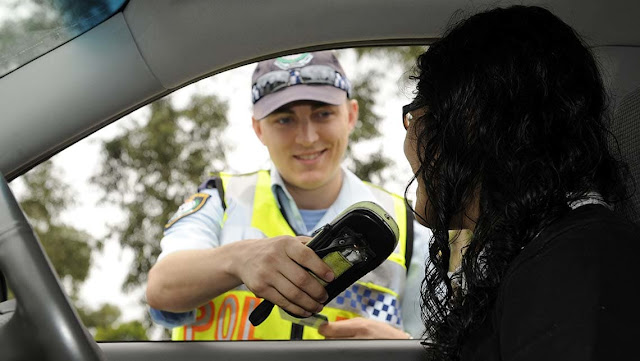A practical guide to hosting a safe teen party at your home: All the things you've never thought of ...
Hosting a party or gathering for teenagers is a
huge responsibility. You want those attending to have fun but, at the same
time, it is your responsibility to provide a safe environment for that to take
place. Things can go wrong. It is important to consider all the possible risks
and put things into place to ensure the safety of not only your guests and your
family, but also your neighbours and the wider community. The greater the
planning, the more likely it is that things will run smoothly.
The parties that are being put on by parents today are very different to those that many of us remember from our teens. Firstly, many of them are much larger events, with 60-80 teens on the invite list not being unusual (I can't personally see why any teen would ever need to have that many people but that's me - what do I know?). Secondly, where many of us only ever attended parties with people we knew well, today with the advent of the 'plus one' event, the mix of teens arriving at your door can vary greatly. No longer do you just see 15 and 16-year-olds at a 15th birthday party - girls are highly likely to bring their 17 or 18-year-old boyfriend (and possibly even their friends) and, as a result, the dynamics change dramatically!
So if you have actually made the decision to host an event
at your home, what do you need to do to prepare for the night ahead to ensure it is
as safe as possible for all concerned? I'm talking the actual 'nuts and bolts'
here … As with any party it will be necessary for you to set-up
during the day. This will involve decorating and laying out the party area, as well
as ensuring that any equipment that needs to be used through the night is
checked. If you are planning on hosting an event here are some of the basic things that many parents rarely, if ever, consider:
- lock any side fences or gates – you want to limit the number of access points there are to the party to just one, i.e., the front door, or wherever you have made the entrance. Talk to your neighbours about locking or at least blocking access to their back gardens for the night as well – that may help to reduce any issues that they may experience
- if possible, lock doors to areas of the house that you do not want accessed – if there are no locks, use furniture to block access
- limit the amount of furniture in accessible areas – seating should be made available but it is best to use garden furniture (if you don't have enough of your own, borrow or hire some). Host parents often find their furniture damaged, even after the most sedate party
- remove valuables from areas where guests do have access
- ensure that electronic devices such as iPads, smartphones and computers are put away and are not left out, even in areas where guests do not have access
- check garden for any hazards that guests could trip over, e.g., hoses, gardening equipment
- if you have a pool, check that fencing is locked and secure – if you are allowing guests to swim, make sure you have a responsible adult in the pool area at all times
- put your car in the garage and secure it – if you don't have a lock-up garage or you have more cars than garage-space, drop your car off at a nearby neighbour's house
- secure your pets or take them somewhere else for the night
- make a visit to as many of your neighbours as possible reminding them about the party – ensure that they have your mobile number so that if they have any concerns through the night, they can call you
Although some of these measures seem extreme, it is better
to be safe than sorry. The vast majority of young people would never consider
stealing from parents hosting a party, however, uninvited guests do make their way
into these events (and remember, there are potentially all those 'plus ones' that no-one really knows anything about!) and, as a result, valuable property can sometimes be stolen.
As the host, you are an important role model. As such, it
would be wise to not drink alcohol yourself. Not only does it set a good
example for those attending, it also ensures that you can deal effectively with
any incidents that may occur through the night. Make sure you have your mobile
on you at all times, ensuring that you can call for assistance should you need
it, or your family or neighbours can get in contact with you.
Some of the things that need to be watched through the night
include:
- in addition to employed security or other adult, ensure you always have someone on the door or entrance area to the party that knows many of the invited guests – the beginning of the party this should be your son or daughter, but as the night progresses, this job should be handed over to a close friend who is able to provide advice
- make yourself available to any parent who wants to meet you when they drop off their child
- actively supervise – if you told other parents that you would be 'supervising' the event, make sure that's what you do. This is not about being intrusive and ruining your child's life – let your teen know beforehand how you plan to supervise and stick to that – they'll certainly let you know if you're stepping over the line!
- check toilets regularly to ensure that they are working properly and are fully stocked
- watch for signs of intoxication and act accordingly
- ensure that food is always available
- be mindful of noise levels – not just the music but also around guests arriving and leaving
- stick to the stated finishing time – if you said the party was finishing at 11.00pm, it needs to be well and truly finished by that time. Music goes off and someone stands at the door watching the guests as they leave – hopefully being picked up by their parents and not simply walking off down the road
As I said, this is truly 'nuts and bolts' stuff - the practical things you need to do as a host to ensure the smooth running of a teenage party, as well as the safety of all who attend. I haven't even touched on issues around alcohol and how to deal with things such as gatecrashers, intoxicated young people arriving at the party and what to do if invitees try to bring alcohol into the party. I'll leave that for another time ... The sad part is that I hear from parents (as well as young people) who didn't consider the 'basics' and things went wrong. Parents who had prized possessions destroyed, teens having their valuables stolen and their pets hurt, as well as families having long-standing friendships with neighbours damaged - we may not be talking about deaths here, but they are all traumas that could have been avoided with just a little planning.
There is no handbook on how to be the perfect parent, you can only do the best you can do at the time. The same is true when it comes to holding an incident-free teenage party. There are guidelines that you can follow, some of which have been outlined. Without doubt the best thing you can do to reduce risk is to make the event alcohol-free. If a parent believes that this is not an option for their child at their stage of development, they need to make sure they take every precaution to make the party as safe as possible for all concerned.




Comments
Post a Comment